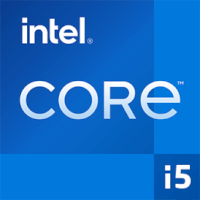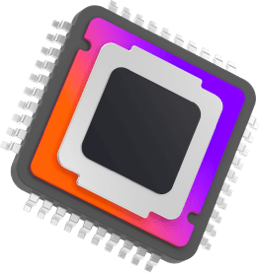| Qualcomm Snapdragon Microsoft SQ1 | Intel Core i5-L16G7 | |
| 7 W | Max TDP | 7 W |
| NA | Stromverbrauch pro Tag (kWh) | NA |
| NA | Laufende Kosten pro Tag | NA |
| NA | Stromverbrauch pro Jahr (kWh) | NA |
| NA | Laufende Kosten pro Jahr | NA |
Qualcomm Snapdragon Microsoft SQ1 vs Intel Core i5-L16G7

Der Qualcomm Snapdragon Microsoft SQ1 arbeitet mit 8 Kernen und 8 CPU-Threads. Es wird an der 3.00 GHz -Basis 1.80 GHz aller Kerne ausgeführt, während die TDP auf 7 W .Der Prozessor ist an den N/A CPU-Sockel angeschlossen. Diese Version enthält 2.00 MB L3-Cache auf einem Chip, unterstützt 1 -Speicherkanäle zur Unterstützung von LPDDR4X-2133 RAM und verfügt über PCIe Gen -Lanes. Tjunction bleibt unter -- Grad C. Insbesondere Kryo 495 Architektur wird mit 7 nm Technologie erweitert und unterstützt None . Das Produkt wurde am Q3/2019

Der Intel Core i5-L16G7 arbeitet mit 5 Kernen und 8 CPU-Threads. Es wird an der 1.40 GHz (3.00 GHz) -Basis -- aller Kerne ausgeführt, während die TDP auf 7 W .Der Prozessor ist an den FC-CSP1016 CPU-Sockel angeschlossen. Diese Version enthält 4.00 MB L3-Cache auf einem Chip, unterstützt 2 -Speicherkanäle zur Unterstützung von LPDDR4-4266 RAM und verfügt über 3.0 PCIe Gen 6 -Lanes. Tjunction bleibt unter 100 °C Grad C. Insbesondere Lakefield Architektur wird mit 10 nm Technologie erweitert und unterstützt VT-x, VT-x EPT, VT-d . Das Produkt wurde am Q2/2020
Qualcomm Snapdragon Microsoft SQ1
Detail vergleichen
| 3.00 GHz | Frequenz | 1.40 GHz (3.00 GHz) |
| 8 | Kerne | 5 |
| 3.00 GHz | Turbo (1 Kern) | 1.40 GHz (3.00 GHz) |
| 1.80 GHz | Turbo (alle Kerne) | -- |
| Hyperthreading | No | |
| Übertakten | No |
|
| hybrid (big.LITTLE) | Kernarchitektur | hybrid (big.LITTLE) |
| Qualcomm Adreno 685 | GPU | Intel UHD Graphics 11th Gen (64 EU) |
| 0.65 GHz | GPU (Turbo) | 0.50 GHz |
| 7 nm | Technologie | 10 nm |
| 0.65 GHz | GPU (Turbo) | 0.50 GHz |
| 12.0 | DirectX-Version | 12 |
| 2 | Max. Anzeigen | 3 |
| LPDDR4X-2133 | Erinnerung | LPDDR4-4266 |
| 1 | Speicherkanäle | 2 |
| Maximaler Speicher | ||
| ECC | No |
|
| -- | L2 Cache | -- |
| 2.00 MB | L3 Cache | 4.00 MB |
| PCIe-Version | 3.0 | |
| PCIe lanes | 6 | |
| 7 nm | Technologie | 10 nm |
| N/A | Steckdose | FC-CSP1016 |
| 7 W | TDP | 7 W |
| None | Virtualisierung | VT-x, VT-x EPT, VT-d |
| Q3/2019 | Veröffentlichungsdatum | Q2/2020 |
Cinebench R20 (Single-Core)
Cinebench R20 ist der Nachfolger von Cinebench R15 und basiert ebenfalls auf der Cinema 4 Suite. Cinema 4 ist eine weltweit verwendete Software zum Erstellen von 3D-Formularen. Der Single-Core-Test verwendet nur einen CPU-Core, die Anzahl der Kerne oder die Hyperthreading-Fähigkeit zählen nicht.
Cinebench R20 (Multi-Core)
Cinebench R20 ist der Nachfolger von Cinebench R15 und basiert ebenfalls auf der Cinema 4 Suite. Cinema 4 ist eine weltweit verwendete Software zum Erstellen von 3D-Formularen. Der Multi-Core-Test umfasst alle CPU-Kerne und bietet einen großen Vorteil beim Hyperthreading.
Cinebench R15 (Single-Core)
Cinebench R15 ist der Nachfolger von Cinebench 11.5 und basiert ebenfalls auf der Cinema 4 Suite. Cinema 4 ist eine weltweit verwendete Software zum Erstellen von 3D-Formularen. Der Single-Core-Test verwendet nur einen CPU-Core, die Anzahl der Kerne oder die Hyperthreading-Fähigkeit zählen nicht.
Cinebench R15 (Multi-Core)
Cinebench R15 ist der Nachfolger von Cinebench 11.5 und basiert ebenfalls auf der Cinema 4 Suite. Cinema 4 ist eine weltweit verwendete Software zum Erstellen von 3D-Formularen. Der Multi-Core-Test umfasst alle CPU-Kerne und bietet einen großen Vorteil beim Hyperthreading.
Geekbench 5, 64bit (Single-Core)
Geekbench 5 ist ein plattformübergreifender Benchmark, der den Systemspeicher stark beansprucht. Eine schnelle Erinnerung wird das Ergebnis stark beeinflussen. Der Single-Core-Test verwendet nur einen CPU-Core, die Anzahl der Kerne oder die Hyperthreading-Fähigkeit zählen nicht.
Geekbench 5, 64bit (Multi-Core)
Geekbench 5 ist ein plattformübergreifender Benchmark, der den Systemspeicher stark beansprucht. Eine schnelle Erinnerung wird das Ergebnis stark beeinflussen. Der Multi-Core-Test umfasst alle CPU-Kerne und bietet einen großen Vorteil beim Hyperthreading.
iGPU - FP32 Performance (Single-precision GFLOPS)
Die theoretische Rechenleistung der internen Grafikeinheit des Prozessors mit einfacher Genauigkeit (32 Bit) in GFLOPS. GFLOPS gibt an, wie viele Milliarden Gleitkommaoperationen die iGPU pro Sekunde ausführen kann.

Schätzung des Stromverbrauchs


